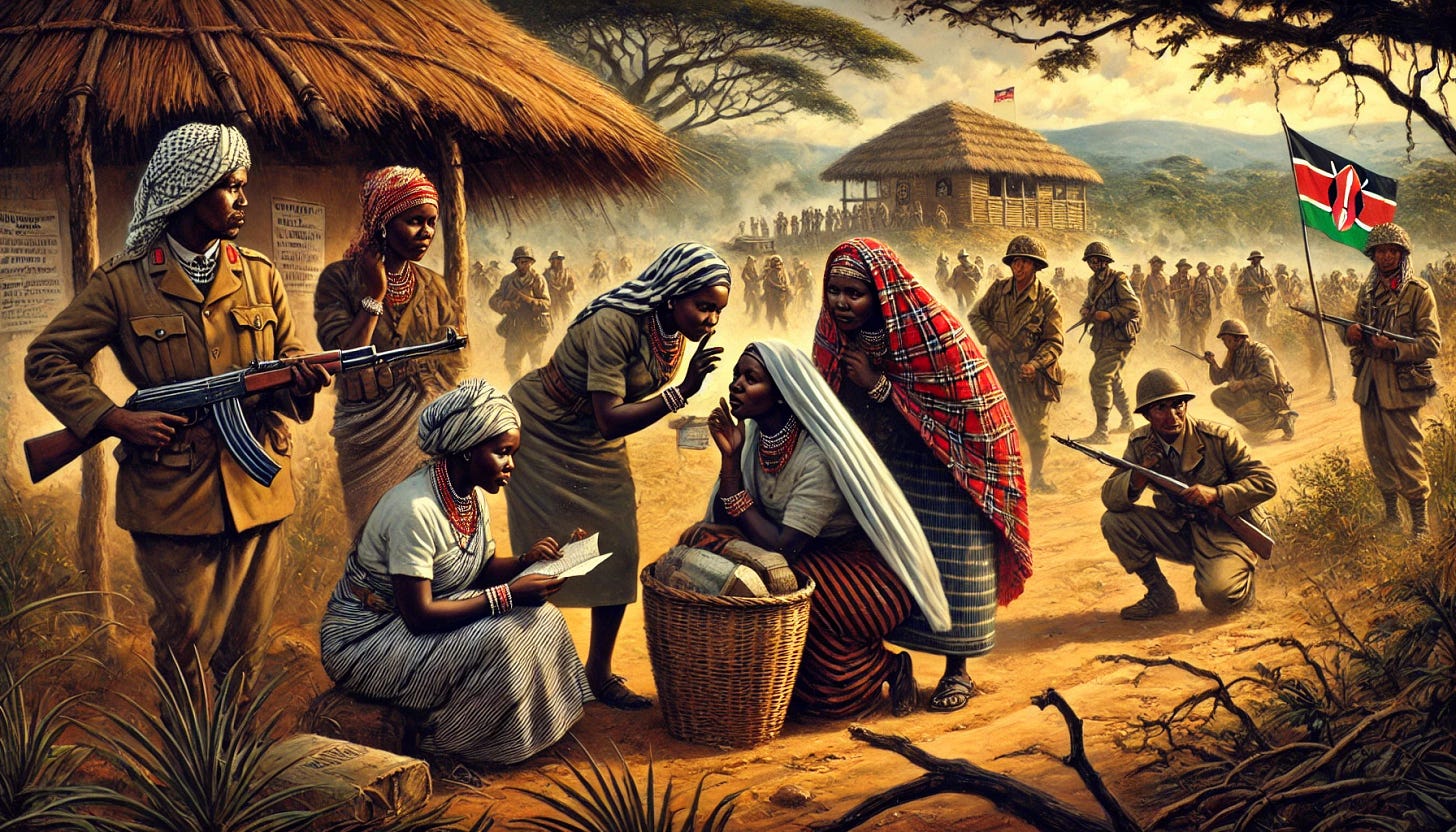The Mau Mau Uprising: Kenya’s Fight for Land, Freedom, and Independence
The Mau Mau Uprising: How Kenya Fought Back Against British Colonial Rule and Won
The Mau Mau Uprising – Kenya’s Fight Against British Colonial Rule
Today, I want to shed light on the Mau Mau Uprising—a pivotal moment in Kenya’s battle against British colonial rule. I've always been frustrated by the narrative we’re served in the USA, which often implies that Africans, regardless of their country or ethnic group, never really fought for their freedoms. This misrepresentation has been drilled into us every Black History Month, and it’s one of the reasons I’ve always felt disconnected during that time.
The powers that be made it seem as if our path to freedom was effortless and that we remained submissive afterward. We were only taught the simplistic “Yes Sir, Masa” story—never the fierce, defiant spirit of the Mau Mau, or even other heroic figures like Nat Turner. This is exactly why I do what I do.
I am a proud Pan-African, committed to uniting all people of African descent for the betterment of our communities worldwide. My hope this February is that at least one of these true-life, heroic tales touches your soul, reminding you that our people are diverse, beautiful, and intelligent. We fought for our freedom in our own unique ways, and these stories deserve to be celebrated and remembered.
Let’s honor these legacies and share these tales with our grandchildren so they know that our history spans the globe—not just the United States. If these stories resonate with you, feel free to like and comment. Adupe, Gracias, Obrigado, Thank you!
🔥 What happens when people refuse to be colonized? You get the Mau Mau Uprising, a powerful anti-colonial rebellion that shook the British Empire and helped Kenya gain its independence.
Today, we’re diving into the Mau Mau revolutionaries, their tactics, and the brutal British crackdown that followed. This is a story of resistance, resilience, and the high cost of freedom.
The Facts About The Mau Mau Uprising – Kenya’s Fight Against British Colonial Rule
The Mau Mau Uprising (1952-1960) was a revolutionary movement where Kenyan freedom fighters, mainly from the Kikuyu, Meru, and Embu ethnic groups, waged war against British colonial rule. This rebellion played a crucial role in Kenya’s path to independence from Britain.
1. The Mau Mau Uprising Was a Fight for Land and Freedom
British colonial rule had stolen Kenyan land and given it to white settlers. The Mau Mau movement sought to reclaim this land and end British oppression.
2. The Movement Was Mostly Led by the Kikuyu People
Many Mau Mau fighters were Kikuyu, the largest ethnic group in Kenya, but the movement also included Meru, Embu, and other Kenyan communities.
3. Fighters Took Oaths of Loyalty to the Cause
Mau Mau members swore sacred oaths that bound them to the resistance, emphasizing loyalty, secrecy, and commitment to the fight against the British.
4. The British Declared a State of Emergency in 1952
Fearing the growing rebellion, the British government imposed a State of Emergency, which led to mass arrests, brutal crackdowns, and the detention of thousands of Kenyans.
5. The Mau Mau Used Guerrilla Warfare
The freedom fighters operated from dense forests in central Kenya, using ambushes, sabotage, and night raids to strike British forces and collaborators.
6. Britain Created Brutal Detention Camps
To crush the Mau Mau, the British established brutal concentration camps, where thousands of Kenyans were tortured, killed, or forced into hard labor.
7. Women Played a Key Role in the Resistance
Women such as Field Marshal Muthoni Kirima fought alongside men, serving as fighters, spies, and supply chain organizers for the Mau Mau army.
8. The British Used Psychological Warfare Against the Mau Mau
The colonial government spread propaganda, calling the Mau Mau "terrorists" and using torture, public executions, and collective punishment to terrorize the population.
9. The Mau Mau Uprising Led to Kenya’s Independence
Though brutally suppressed, the Mau Mau rebellion weakened British control, paving the way for Kenya’s independence in 1963, with Jomo Kenyatta as the first president.
10. The British Government Apologized in 2013
After decades of silence, Britain formally apologized for its human rights abuses during the uprising and agreed to compensate surviving Mau Mau veterans.
Why This Matters Today
The Mau Mau Uprising wasn’t just about Kenya—it was part of the global fight against colonialism and white supremacy. Their bravery and sacrifices remind us that freedom is never given—it must be fought for.
✨ Tune in for the full discussion on Kenya’s fight for independence!
📺 Watch on YouTube: https://www.youtube.com/@TadeOyeilumi
📩 Subscribe on Substack for More Untold Black History: https://substack.com/@oreofetadeoyeilumi?r=2ntabk&utm_campaign=profile&utm_medium=profile-page
🗣️ Did you know about the Mau Mau Uprising? What are your thoughts on their fight for independence? Let’s talk in the comments!







The Mau May would invade the oppressors homes and take their heads. They were my heroes in the sixties